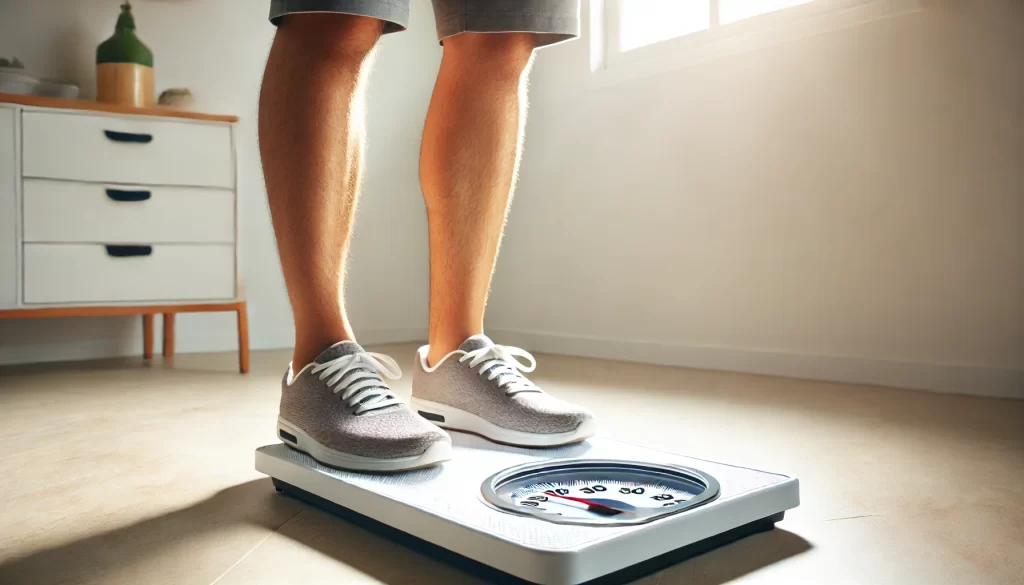Table of Contents
If you’re looking to shed pounds fast, you might wonder, “How much weight can you lose in two weeks?” This article will delve into what’s realistically achievable, practical strategies, and common myths surrounding rapid weight loss. By understanding “how much weight can you lose in two weeks,” you’ll gain insights into setting realistic goals, implementing effective methods, and avoiding pitfalls. Whether preparing for a special event or starting a weight loss journey, knowing what’s possible in a short timeframe is essential for success and safety.
Setting Realistic Expectations

When asking, “How much weight can you lose in two weeks?” setting realistic expectations is essential. While rapid weight loss can motivate, focusing on healthy and sustainable methods is essential.
Safe Weight Loss Rates
Health experts suggest that losing 1 to 2 pounds weekly is a safe and sustainable goal. This means a total weight loss of 2 to 4 pounds in two weeks. This pace helps ensure you lose fat rather than muscle or water weight. Extreme diets or drastic measures might lead to quicker results but often come with health risks and are more challenging to maintain.
Factors Influencing Weight Loss
Several factors influence how much weight you can lose in two weeks. These include your starting weight, age, gender, metabolism, and activity level. People with higher starting weights may see more noticeable changes in the initial weeks compared to those already closer to their ideal weight.
Effective Strategies for Weight Loss

To respond to the inquiry, “How much weight can you lose in two weeks?” Let’s look at some realistic and healthy strategies. These methods can help you achieve your weight loss goals without compromising your health.
Balanced Diet
Eating a balanced diet is vital to losing weight safely. Focus on:
- Fruits and Vegetables: They are rich in nutrients and low in calories. They can help you feel full and satisfied.
- Lean Proteins: Foods like chicken, fish, tofu, and beans support muscle health and can aid in weight loss.
- Whole Grains: Brown rice, oats, and whole wheat products provide energy and help keep you full.
Avoid fad diets that promise quick fixes. Instead, aim for a diet that you can stick with long-term.
Regular Exercise
Combining diet with regular exercise is crucial. Try to incorporate both strength and aerobic training exercises:
- Cardio Workouts: Walking, jogging, and cycling increase your heart rate and burn calories.
- Strength Training: Exercises like weight lifting or bodyweight workouts build muscle, which can increase your resting metabolic rate.
Try to exercise at least 150 minutes per week, or about 30 minutes a day, to see significant results.
Hydration
Drinking enough water is vital for weight loss. People can mistake thirst for hunger, leading them to overindulge in food. Try to consume eight glasses of water or more each day. Drinking water before meals can also help control your appetite.
Common Myths About Rapid Weight Loss
There are many myths about losing weight quickly. Here are some of the most common ones debunked:
Myth 1: You Can Target Fat Loss
Many believe they can lose fat from specific areas of their body, such as the belly or thighs. However, spot reduction is not adequate. Overall, weight loss through diet and exercise is the best way to reduce fat in specific areas.
Myth 2: Extreme Diets Are Effective Long-Term
Extreme diets may lead to quick weight loss but are often unsustainable and can lead to nutritional deficiencies. Adopting a balanced approach that supports long-term health and weight management is better.
Myth 3: More Exercise Means More Weight Loss
While exercise is important, overdoing it without proper nutrition and rest can be counterproductive. Balance is key. Over-exercising can lead to injuries and burnout, making it harder to stick to your weight loss goals.
Also Read: When Can You Neuter a Dog? Discover the Critical Timing for Best Results
Tracking Your Progress
Tracking your progress is essential to tracking your progress is essential to measure how much weight you can lose in two weeks. Use methods like:
- Weighing Yourself: Track your weight simultaneously each day for consistency.
- Measuring Your Body: Take measurements of your waist, hips, and other areas to see changes beyond the scale.
- Keeping a Food and Exercise Journal: Documenting your intake and workouts can help you stay accountable and adjust as needed.
So, how much weight can you lose in two weeks? Realistically, losing 2 to 4 pounds is both achievable and safe. Knowing “how much weight can you lose in two weeks” enables you to make reasonable expectations and goals. To achieve this, focus on a balanced diet, incorporate regular exercise, and stay well-hydrated. These steps can lead to significant progress within two weeks. However, for long-term success, it’s crucial to adopt and maintain healthy habits beyond this initial period. By doing so, you lay the foundation for continued weight management and overall health improvement.
As you embark on your weight loss journey, keep in mind “How much weight can you lose in two weeks” to set realistic and achievable goals. Using these insights will help you reach your objectives healthily and sustainably. If you have any health concerns or need personalized advice regarding “How much weight can you lose in two weeks,” consider consulting a healthcare professional. They can help tailor a plan specifically for you, ensuring that your approach is both effective and safe.




